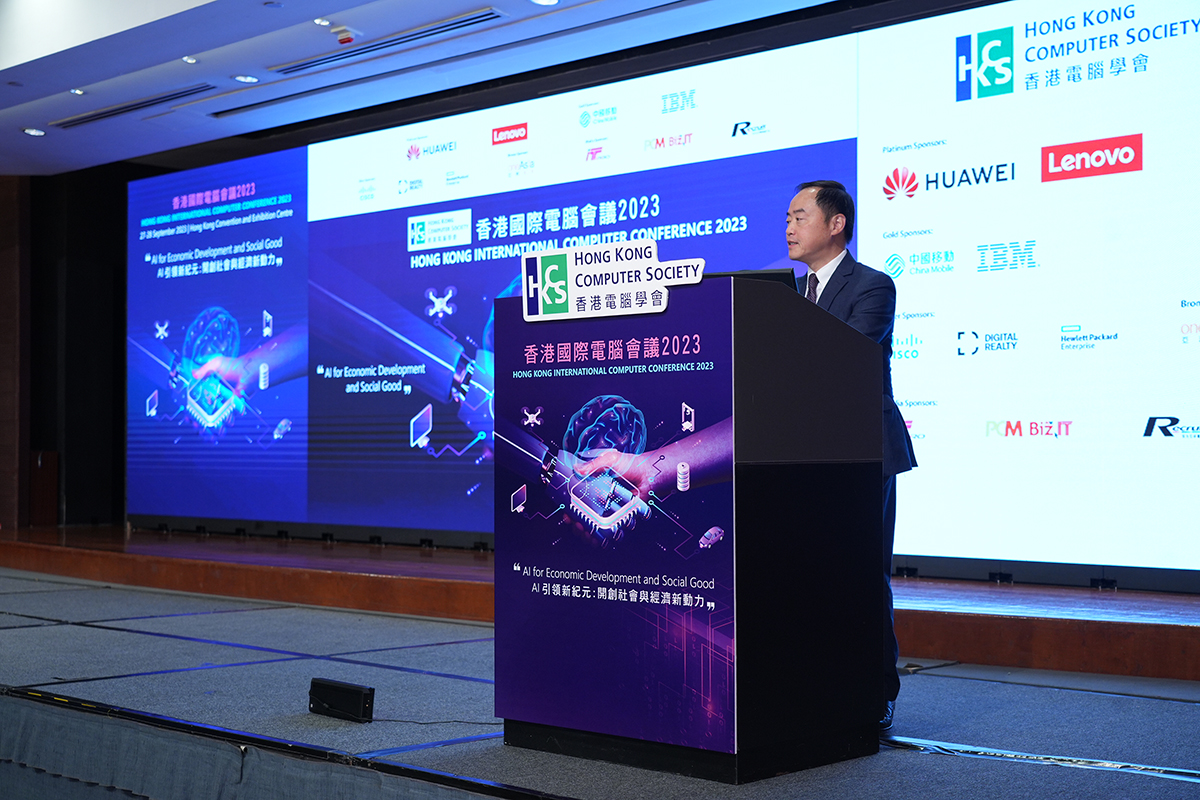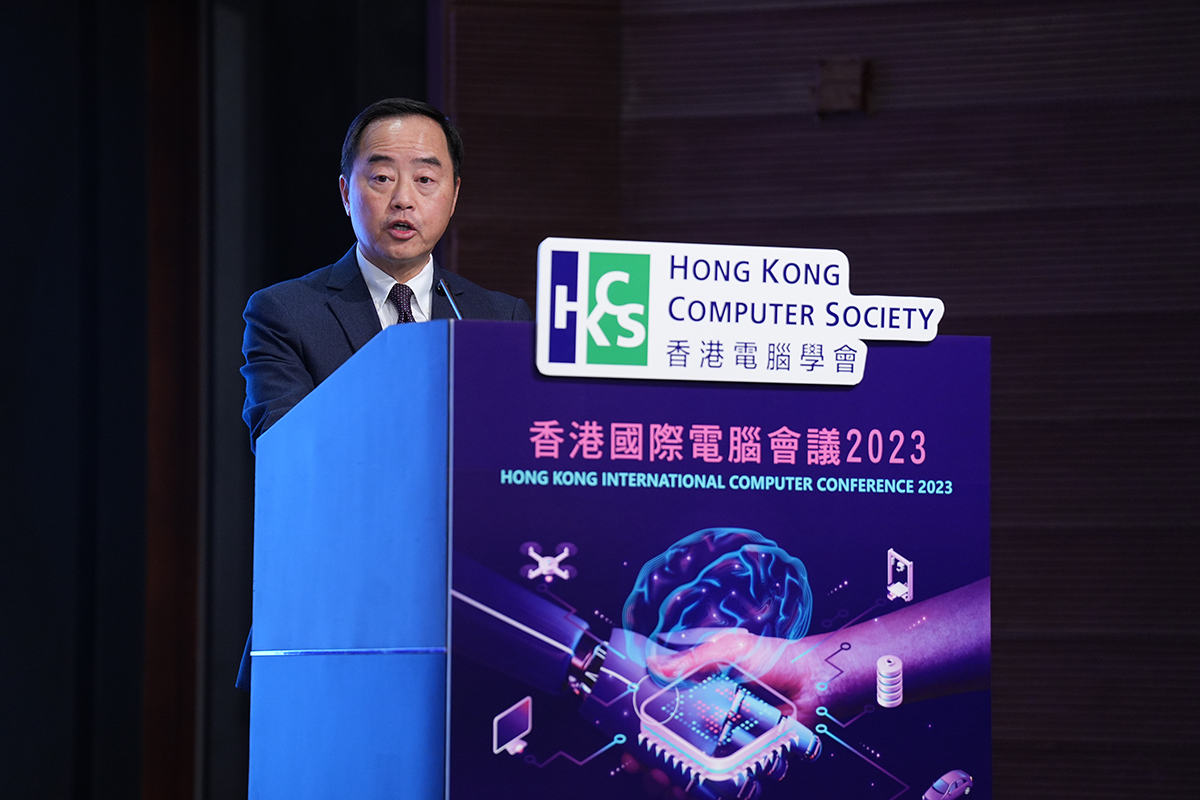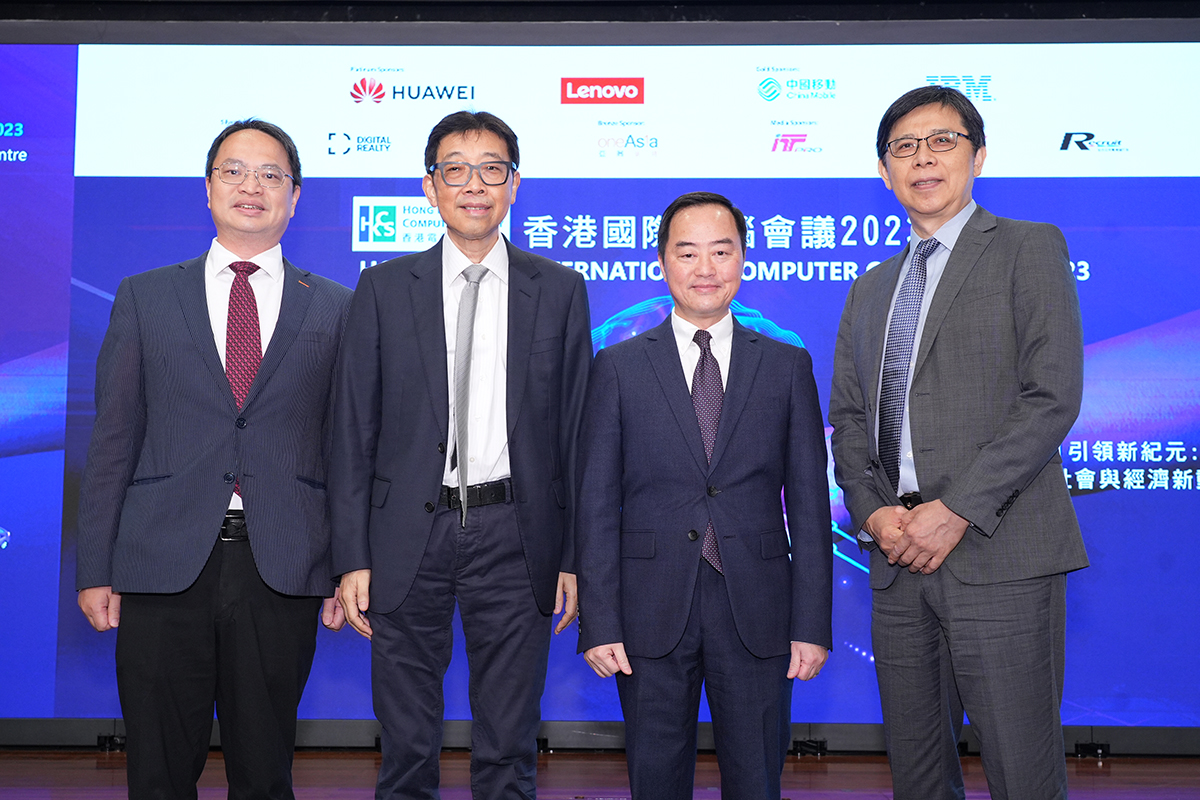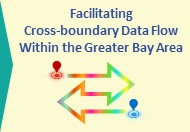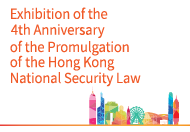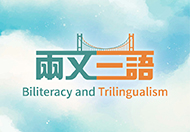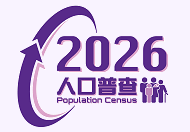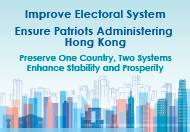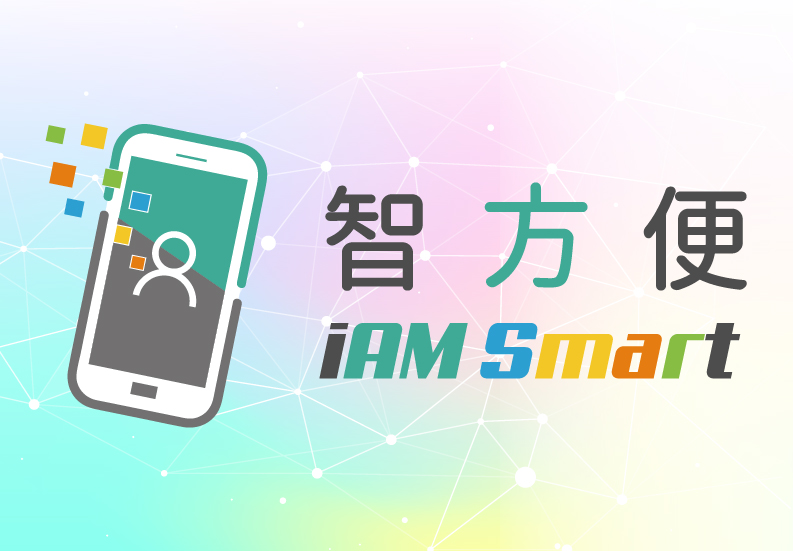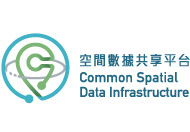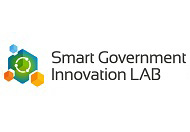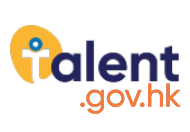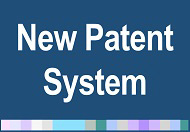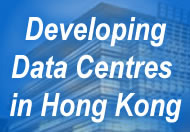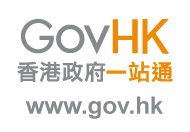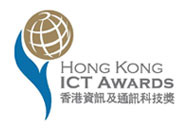Opening Remarks by Ir Tony Wong, JP, Government Chief Information Officer, at the“Hong Kong International Computer Conference (HKICC) 2023 Day 2 Morning Session” (with photos)
Professor Cao (Organising Chairperson, HKICC 2023, Professor CAO Jiannong), distinguished speakers, honorable guests, ladies and gentlemen,
Good morning! I am very much privileged to join you all today at this Hong Kong International Computer Conference (HKICC) to explore the immense potential of Artificial Intelligence (AI) and its role in driving economic development and fostering social well-being.
In recent years, we have all witnessed an unprecedentedly powerful acceleration of digitisation taking place across our society. This wave of digital transformation has revolutionised how all organisations conduct their businesses, making digital economy a crucial catalyst for global economic growth. At the heart of this transformation is AI, particularly the emerging field of generative AI, which has caught the attention of the world. Technology companies around the globe have launched their large language models and various applications of generative AI. Numerous studies have highlighted the significant economic benefits of AI. For example, back in 2018, the McKinsey Global Institute already estimated that AI could potentially deliver an additional global economic output of about US$13 trillion by 2030, boosting global Gross Domestic Product (GDP) by about 1.2 percent per year. More recently, another Goldman Sachs Research in 2023 suggested that generative AI could raise global GDP by 7% and lift productivity growth by 1.5% over a 10-year period. The economic benefits brought by AI are expected to be vast and far-reaching.
Additionally, AI has tremendous potential to address complex societal challenges. The Government of the Hong Kong Special Administration Region has been committed to adopting cutting-edge technologies, including AI, to further innovate digital government services and improve citizens’ lives. For example, the Government has leveraged AI to assist in a number of tasks such as identifying risk factors of student loan applications, detecting vehicles that are modified illegally to produce excessive noises, and automatically obscuring human faces and car plates for privacy protection during street view images collection. Meanwhile, we have launched over 10 chatbots leveraging AI technologies, which enhance citizens’ experience in using government services, particularly in making enquiries. We have also developed the Traffic Data Analytics System adopting AI to analyse traffic and weather data, providing the public with useful open data such as real-time and predicted average traffic speed and journey time in order to facilitate their journey planning.
To further dovetail with our country’s overall development plan, the Government promulgated the Hong Kong Innovation and Technology (I&T) Development Blueprint (the Blueprint) last year. One of the four major development directions is to promote digital economy development and build Hong Kong into a smart city, with AI being one of the four major development areas recommended in the Blueprint. In order to promote the development of the AI industry in Hong Kong, possessing adequate computing resource infrastructure is one of the prerequisites. We are actively pursuing the development of an AI Supercomputing Centre in Hong Kong as a major strategic technology infrastructure to provide AI supercomputing services for local universities, research institutes, government departments and industry sectors, with a view to strengthening the local research and development (R&D) capabilities and advancing related industry ecosystems.
Another pillar that promotes the development of Hong Kong’s AI industry is talent. Apart from attracting overseas talents to come to Hong Kong, the Government is also striving to nurture I&T talents locally by vigorously promoting STEAM education in primary and secondary schools. Education Bureau has incorporated coding and different I&T learning elements increasingly in school curriculums, including developing the “Enriched Module on Coding Education for Upper Primary Level” and “Module on AI for Junior Secondary Level”. My Office also launched the “IT Innovation Lab in Secondary Schools” and the “Knowing More about IT” programmes in primary schools to encourage and support primary and secondary schools to organise IT-related extra-curricular activities for their students. All these initiatives serve to cultivate students’ interest in I&T at an early age and enhance their digital skills, with a view to laying a solid foundation for our long-term I&T development.
Undoubtedly, AI brings huge opportunities to digital innovation and helps promote the development of digital economy and smart city. However, as with all sorts of technological advancements, AI can be a double-edged sword. The development and application of AI have given rise to concerns over a number of issues such as information security, privacy protection, fake and biased information, ethics and intellectual property rights, etc. The Office of the Privacy Commissioner for Personal Data (PCPD) published in 2021 the Guidance on the Ethical Development and Use of Artificial Intelligence (the AI Guidance) to help organisations understand and comply with the relevant personal data privacy protection requirements under the Personal Data (Privacy) Ordinance in the development and use of AI.
Having consulted the PCPD and drawn reference to its AI Guidance, my Office also formulated in 2021 the Ethical Artificial Intelligence Framework that seeks to provide government bureaux and departments with a set of practice guidance for reference in the implementation of projects that involve the use of AI, and in the identification and management of the potential risk of the relevant project and other issues such as privacy, data security and management. In view of the latest development of generative AI, we updated the Ethical AI Framework in August this year to highlight some of the potential areas of concerns and challenges as well as some suggested practices. By adopting and implementing these guidelines, organisations can demonstrate their commitment to safeguarding stakeholders’ rights and interests, while also promoting responsible AI practices when unlocking the potential benefits of AI.
Given that the development of AI technology is still rapidly evolving, the Government will remain open-minded and continue to closely monitor the future development and application of the technology. Through strong collaboration with industry partners, we will work together to embrace the opportunities and challenges brought by AI, and unlock the full potential of this transformative technology for the benefit of all.
In closing, I encourage all participants to actively engage in today’s programme, embrace the spirit of collaboration and leverage the power of AI to drive economic prosperity, foster social well-being, and create a future that is sustainable, and prosperous for all. Thank you, and I wish you all an enlightening conference.
- ENDS -






